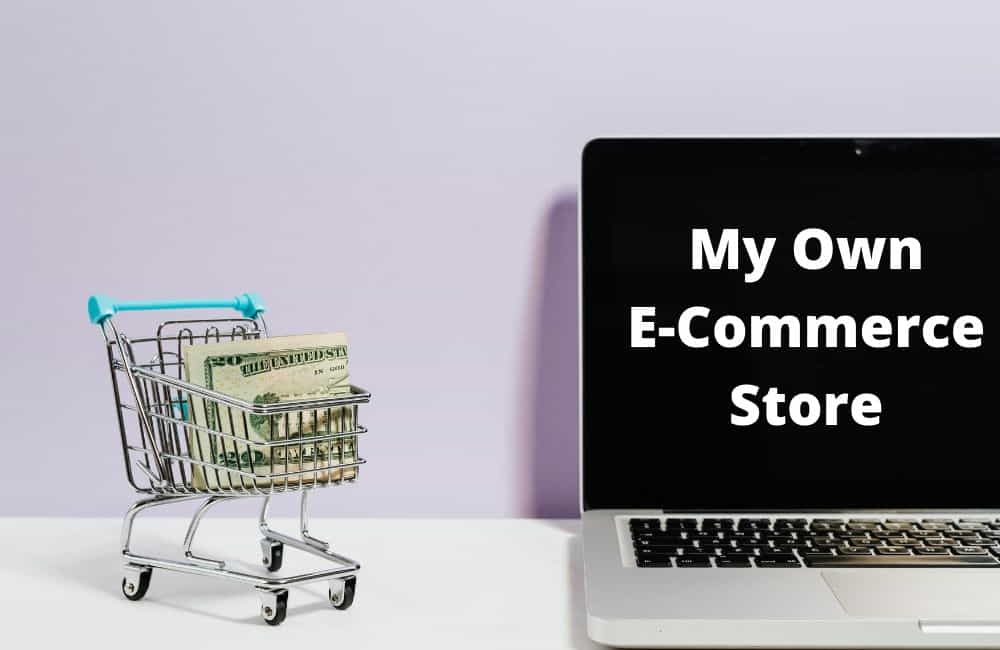E-commerce is no longer just a trend; it’s the new shopping norm. As of 2025, global e-commerce sales are projected to surpass $8.1 trillion, showcasing the tremendous opportunities available to entrepreneurs. Whether you have a skill set, products to sell, or a small investment to make, starting your own online business has never been easier. Businesses that fail to embrace e-commerce risk falling behind in this fast-paced digital economy.
There are two ways to sell online: using third-party platforms like Amazon, eBay, Temu, AliBaba, FlipKart, Daraz or Noon etc, or creating your own e-commerce store. While third-party platforms are convenient, owning your e-commerce store offers unmatched benefits and flexibility. Below, we explore the key advantages of having your own online store, and why starting one could be the perfect side hustle—even alongside a full-time job.
Key Advantages of Running Own E-Commerce Brand
Independence from Third-Party Platforms
Relying on third-party platforms comes with risks, as they can change policies, reduce visibility, or even remove your listings without notice. With your own store, you have full control over your products, pricing, and customer relationships. You can operate without restrictions and build a brand on your terms.
A Branding, Marketing, and Sales Powerhouse
Your e-commerce website is more than just a storefront; it’s a branding tool, marketing hub, and sales channel. It allows you to showcase your story, connect with customers, and display your products effectively. Unlike social media platforms, which limit your reach to followers, your website is a 24/7 global showroom.
Flexibility and Customization
Consumer behavior is evolving rapidly, and having a customizable store ensures you can adapt to changing demands. Whether you’re selling physical products or services, or even running a dropshipping business, your store can be tailored to fit your business model. For example, companies like Uber, the world’s largest taxi service, thrive without owning any vehicles—a testament to the power of flexible business models.
Space for Experimentation
An e-commerce store offers endless opportunities for experimentation. Test different layouts, marketing strategies, and product offerings. Use tools like Google Analytics to monitor traffic and customer behavior, enabling you to refine your approach for maximum conversions.
Real-Time Data and Insights
Unlike brick-and-mortar stores, e-commerce platforms provide real-time data about customer preferences, purchase patterns, and traffic sources. These insights are invaluable for making data-driven decisions and improving your store’s performance.
Build Trust and Brand Value
A professional website builds credibility. Customers are more likely to trust and shop from a well-designed e-commerce store than a poorly managed marketplace profile. By consistently delivering quality products and customer service, you can establish long-term brand loyalty.
Integration with Tools and Platforms
Modern e-commerce platforms offer seamless integration with social media, payment gateways, and shipping carriers. Automating these processes ensures transparency, reduces errors, and enhances the customer experience.
Low Setup Costs, High Earning Potential
Setting up an e-commerce store is cost-effective compared to a physical store. Platforms like Shopify and WooCommerce allow you to start with minimal investment. You can also monetize your site with affiliate marketing, Google AdSense, or collaborations with other brands to generate additional income streams.
Exclusive Customer Relationships
With over 1 billion Google searches daily, your website has the potential to attract a loyal customer base. Personalized experiences, targeted promotions, and loyalty programs can help convert visitors into repeat buyers.
You can automate queries resolutions, by adding FAQs on automate mode on social media platforms and also you can automate follow up emails through email app integration or pluggins.
Operate on Your Own Terms
Owning an e-commerce store means you’re the boss. Set your own rules, run your store 24/7, which works while you sleeping and scale your operations as demand grows. Automation tools can handle customer service, inventory management, and order processing, making it easier to manage your side hustle alongside a full-time job.
Leverage Free Traffic and Boost Conversions
Organic traffic from search engines is free and highly valuable. With a strong SEO strategy and quality content, you can attract visitors actively searching for your products or services. Organic traffic often has a higher conversion rate compared to paid ads, making it a cost-effective way to grow your business.
Data-Driven Decision Making
By analyzing data from your store, you can make informed decisions about inventory, pricing, and marketing. This reduces risk and ensures a higher return on investment, giving you a competitive edge.
Lucrative Passive Income Source
Having your own e-commerce store isn’t just about active sales; it’s also a gateway to building a reliable passive income stream. Once your store is set up with optimized content, automated order management, and integrated payment systems, it can continue to generate revenue 24/7 without requiring constant supervision. By leveraging strategies like affiliate marketing, drop shipping, and displaying ads through programs like Google AdSense, you can create multiple passive earning channels within your website. For instance, dropshipping enables you to sell products without holding inventory, and affiliate links allow you to earn commissions from related brands. When coupled with a strong SEO and marketing strategy, your e-commerce store can become a well-oiled machine that works for you even when you’re not actively managing it.
Conclusion: Why Now is the Time to Start
Starting an e-commerce store in 2025 is more than a side hustle—it’s an investment in your future. The flexibility, low cost, and potential for high returns make it an ideal opportunity for anyone looking to generate additional income. Whether you’re selling handmade crafts, offering digital services, or launching a dropshipping business, the possibilities are endless.
Want more motivation and expert guidance for side hustlers. Read this Inspiring Books for Entrepreneurs, Startup Founders & Side Hustlers to Read in 2025








3 Responses